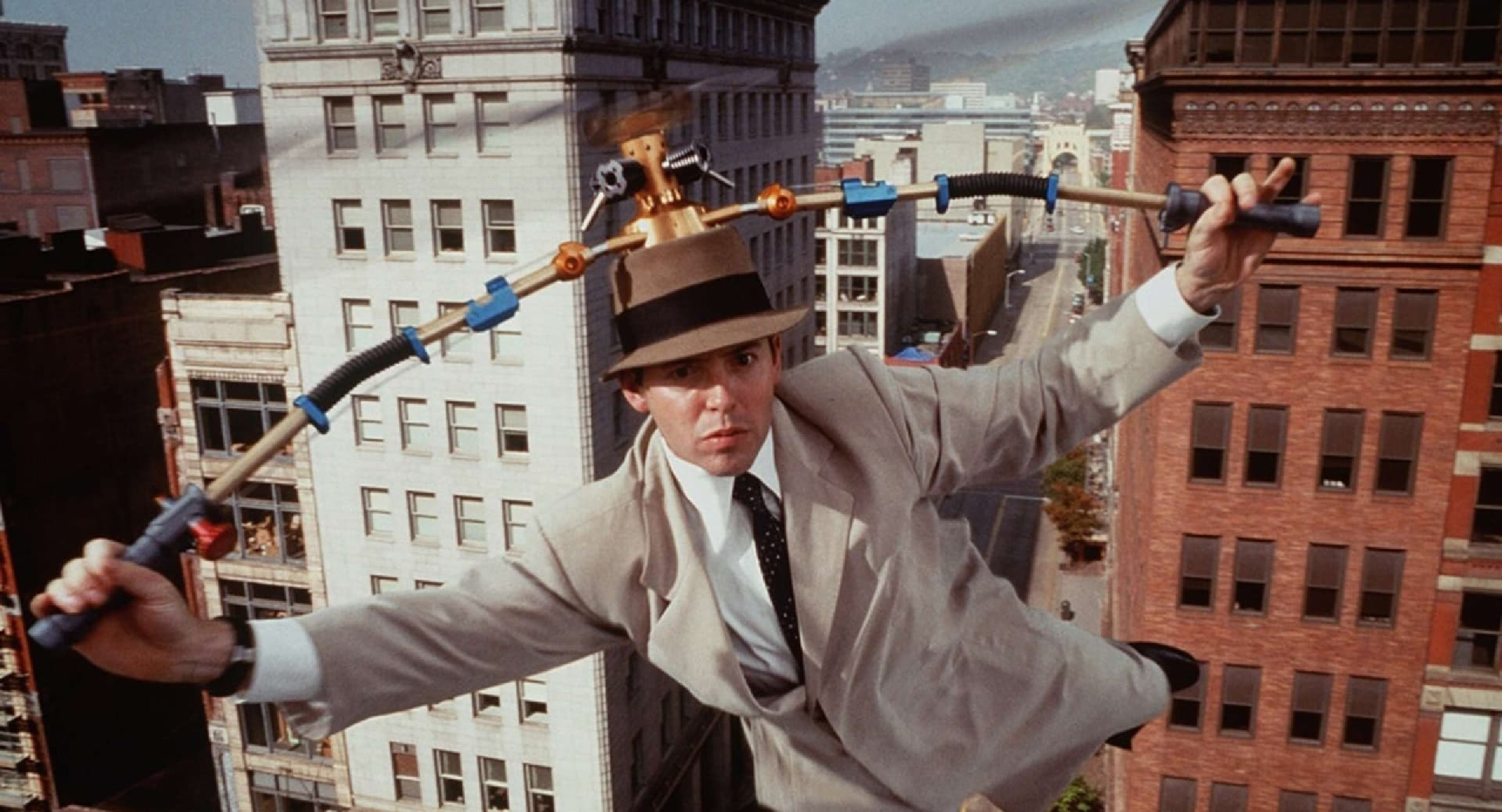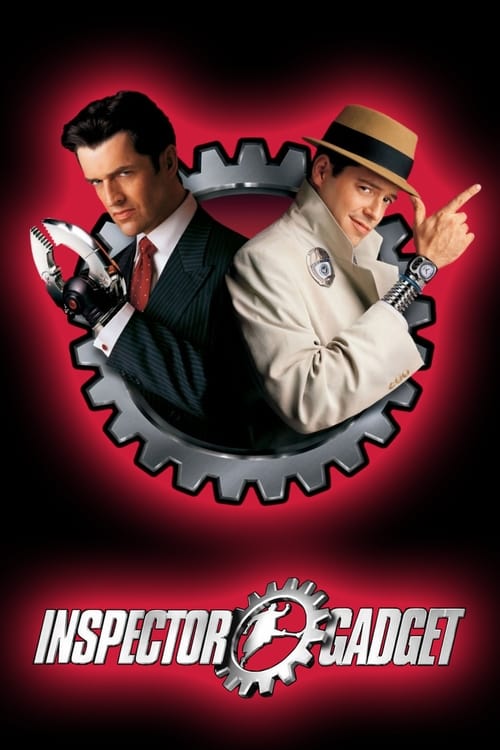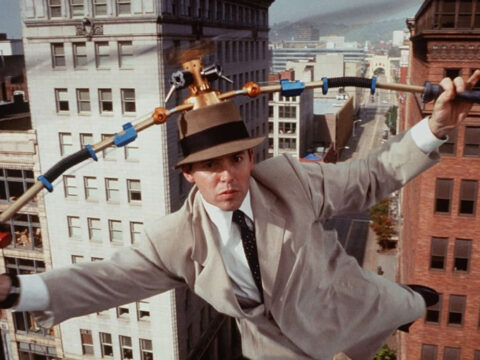Inspector Gadget – Film Review
Published February 26, 2024

Inspector Gadget, the 1999 live-action film adaptation of the beloved 1980s animated television series, aims to bring to life the whimsical world of its titular character. Directed by David Kellogg and starring Matthew Broderick as the eponymous hero, the movie seeks to blend comedy, action, and family-friendly entertainment. Unfortunately, despite its nostalgic potential and the endearing qualities of its source material, Inspector Gadget falls significantly short of expectations. The film is marred by a lack of coherence, an unremarkable script, and performances that range from the unremarkable to the peculiar.
First and foremost, the film suffers from an identity crisis, straddling the line between homage to the original series and an attempt to forge a new path. This wavering direction results in a tonally disjointed experience. Fans of the original series will find fleeting moments of nostalgia in the gadgetry and occasional nods to the beloved cartoon. However, these moments are sparse and buried beneath layers of lackluster innovation and misdirected humor.
Matthew Broderick’s portrayal of Inspector Gadget/John Brown is emblematic of the film’s broader issues. While Broderick is undoubtedly a talented actor, his portrayal here feels uninspired and disconnected. The charm and warmth that characterized his performances in other roles are conspicuously absent, replaced by a flat and sometimes awkward interpretation of the character. This disconnect is not solely the fault of Broderick but speaks to deeper issues within the script and direction, which fail to properly develop the character or provide the actor with material that could elicit a more compelling performance.
Moreover, the antagonist Dr. Claw, played by Rupert Everett, is equally disappointing. In the original series, Dr. Claw was an enigmatic and menacing presence, his face never seen, which added to his mystique. In contrast, the film opts to bring him into the light, both literally and metaphorically, stripping away any sense of mystery or intimidation. Everett’s performance, while clearly aiming for a campy villainy, veers into the realm of caricature without ever feeling genuinely threatening or particularly interesting. The decision to flesh out the character in such a manner demonstrates a misunderstanding of what made Dr. Claw compelling in the first place.
The narrative itself is rife with issues, lacking both coherence and originality. The plot, which revolves around the transformation of John Brown into Inspector Gadget and his subsequent battle with Dr. Claw, is predictably formulaic and fails to introduce any noteworthy twists or turns. The emotional beats feel unearned, and character motivations are either unclear or cliché. This problem is exacerbated by the film’s pacing, which rushes through potentially interesting developments and dwells on scenes that add little to overall plot progression or character depth.
On the technical front, Inspector Gadget struggles to find solid ground as well. While some of the gadget-related visual effects are decent for the era, others have aged poorly or were simply unconvincing from the outset. The inconsistency in visual effects quality is jarring and detracts from the immersion in the film’s universe. Additionally, the film’s soundtrack, which could have served as a vibrant tribute to the original’s catchy theme and underscored action sequences, instead feels generic and forgettable.
However, it would be remiss not to acknowledge the few aspects where Inspector Gadget shows glimmers of potential. Dabney Coleman‘s brief role as Chief Quimby provides a welcome, if underutilized, presence. Additionally, some of the gadgetry, particularly in the first half of the film, does elicit a sense of whimsical fun that the original series was known for. These moments, however fleeting, remind the viewer of what could have been if the film had managed to consistently capture the spirit of its source material.
Inspector Gadget is a largely disappointing adaptation that fails to capture the charm and creativity of the original animated series. Its issues are manifold, stemming from a confused sense of identity, underdeveloped characters, a lackluster script, and inconsistent visual effects. While it may offer brief moments of nostalgia or amusement, these are not enough to compensate for its many shortcomings. This film serves as a cautionary tale of the challenges inherent in adapting beloved cartoons for the big screen, underscoring the importance of understanding what made the original material resonate with audiences in the first place. Inspector Gadget is an extremely bad movie, with the hope that any future adaptations might better honor the legacy of the beloved inspector and his unforgettable array of gadgets.

